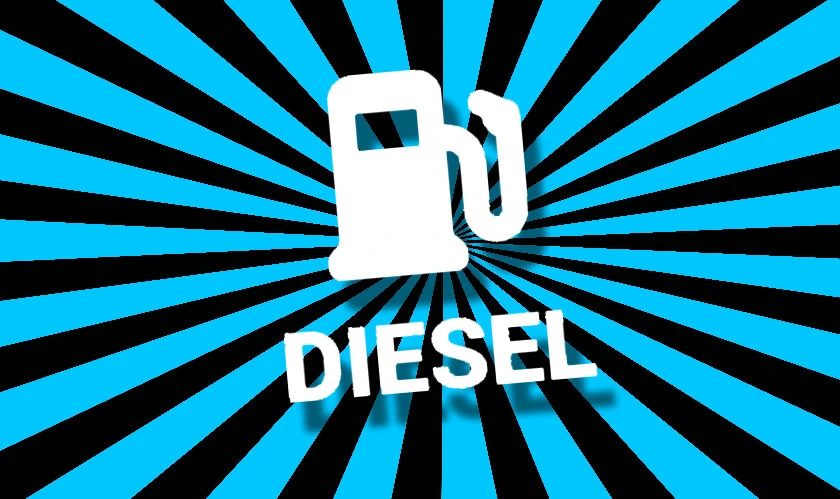Home Platforms Others As Few as 5% of New Cars Will ...
Others

CIO Bulletin
29 January, 2024
The automotive industry has undergone significant changes in recent decades, partly driven by environmental and climate change concerns. One of the major shifts in the market has been the decline in the popularity of diesel engines, which were once seen as a cleaner and more efficient alternative to traditional gasoline engines. However, with just 1 in 20 new car buyers opting for diesel, is the diesel engine on the way out?
The Statistics behind the Decline
In a recent industry survey, What Car? asked 910 potential buyers actively looking to purchase, focusing on their opinions on diesel cars and whether they plan to buy one in the future. Surprisingly, only 5% of the respondents are considering buying a new diesel car, while 21% of used car buyers are open to the idea. Interestingly, 90% of all respondents are considering non-diesel fuel options, and 66% of these drivers have decided never to purchase a diesel car again. Many have voiced dissatisfaction with diesel vehicles due to the increasing number of low-emission zones in the UK. These zones impose stricter penalties on diesel vehicles compared to petrol vehicles.
Sales of electric cars surged by over 25% in 2022, capturing a significant market share of 16.6% and outperforming diesel vehicles, which dipped below 10% in demand. Most car manufacturers now offer electric vehicles as part of their product range, with companies like Tesla leading the way in producing and selling electric cars. The trend will continue, with the looming petrol and diesel ban by 2035. This has prompted car manufacturers to accelerate their plans to phase out diesel engines and increase investment in electric and hybrid cars. Many major car manufacturers, including Volvo, Ford, and Jaguar Land Rover, have announced plans to phase out diesel cars completely by 2025 or earlier.
Moreover, car manufacturers are now competing to gain market shares in the EV sector, introducing new models regularly. Ford, for example, has announced its plans to go all-electric by the end of 2030 and go all-electric in Europe by 2026. Similarly, General Motors announced it would be going carbon-neutral by 2040 and aims to have 30 electric vehicles in the market by 2025.
The Demise of Diesel
A range of factors has sounded the death knell of diesel. First and foremost, there is growing concern about the environmental impact of diesel engines, particularly in urban areas. Diesel engines emit elevated levels of nitrogen oxides (NOx) and particulate matter (PM) compared to gasoline engines. These emissions have been associated with profound health complications such as respiratory problems, heart disease, and even cancer. These pollutants are also contributing to climate change by increasing greenhouse gas emissions.
The Volkswagen emissions scandal of 2015 exposed the dirty secrets of diesel engines and further eroded consumer confidence in the technology. The scandal led to increased scrutiny of diesel emissions and tougher regulations, putting pressure on car manufacturers to improve the cleanliness of diesel engines or face heavy fines. In addition to the fines, multiple carmakers face rising numbers of diesel claims for putting emissions-cheating software or so-called "defeat devices" in their vehicles. Claimexperts.co.uk covers more about this pressing issue, including how car owners can still join today.
This increased scrutiny has resulted in car manufacturers investing more in developing cleaner, more efficient gasoline engines, electric vehicles, and hybrid technology. The growth of electric and hybrid cars, which emit zero or low levels of pollutants, has also contributed to the decline of diesel engines.
Does This Mean the End of Diesel Engines?
From the industry's current state, the future of diesel vehicles seems bleak. With oil being a finite fossil fuel, green energy and battery technology are the future. Although diesel cars will still be available for purchase in some countries for several years to come, they are likely to become the minority soon. Diesel still plays a role in the automotive market, particularly for long-distance, high-mileage drivers requiring greater fuel efficiency. The latest diesel engines are cleaner than their predecessors, and car manufacturers are investing in new technologies, such as hydrogen fuel cells, to make diesel more sustainable. However, the high cost of production has been a significant barrier to adoption. Many buyers who had opted for diesel vehicles in the past may instead choose EVs since they have become more popular and are being seen as a symbol of environmentally conscious living.
Bottom Line
The decline of diesel engines indicates the automotive industry's willingness to adapt to changing technological, environmental, and societal demands. With increasing concerns about air pollution and climate change, car manufacturers are investing in more sustainable alternatives and phasing out traditional engines. While diesel is not the future of the automotive industry, it still has a role to play in the short term, particularly for long-distance drivers. As the industry moves towards a more sustainable and environment-friendly future, the importance of diesel engines in the market will steadily diminish.







